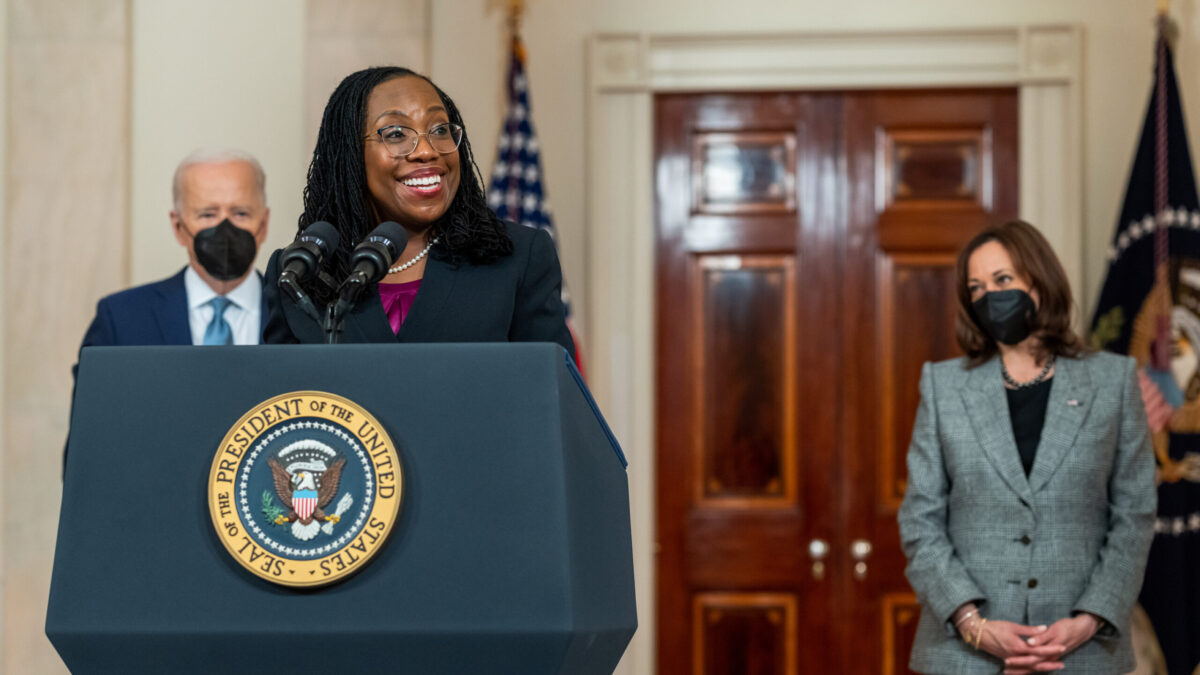Free speech is on trial at the Supreme Court, but Justice Kentanji Brown Jackson is no fan of the First Amendment. The Constitution, you see, limits the government. But leftists want unlimited government — which is why they hate the Constitution.
During Monday’s oral arguments for Murthy v. Missouri, formerly known as Biden v. Missouri, Jackson claimed to oppose any ruling in favor of Americans’ constitutional right to free speech if it limited the government’s ability to censor that speech via Big Tech.
“My biggest concern is that your view has the First Amendment hamstringing the government in significant ways in the most important time periods,” Jackson told Louisiana Solicitor General Benjamin Aguiñaga.
Jackson expressed skepticism at reigning in the federal government’s unconstitutional censorship pressure campaign because “some might say that the government actually has a duty to take steps to protect the citizens of this country” that goes far beyond simply posting its own speech or engaging in constitutional means of securing citizens from violence.
“You seem to be suggesting that that duty cannot manifest itself in the government encouraging or even pressuring platforms to take down harmful information,” Jackson. “So can you help me? Because I’m really worried about that. Because you’ve got the First Amendment operating in an environment of threatening circumstances, from the government’s perspective, and you’re saying that the government can’t interact with the source of those problems.”
Aguiñaga clarified that he wasn’t arguing for a complete ban on all interaction between the government and social media companies, but for that relationship to stay within constitutional bounds.
“Our position is not that the government can interact with the platforms there. They can and they should in certain circumstances like that, that present such dangerous issues for society and especially young people,” Aguiñaga said. “But the way they do that has to be in compliance with the First Amendment. And I think that means they can give them all the true information that the platform needs and ask to amplify that.”
There is no lack of proof that federal agencies including the Department of Health and Human Services, National Institute of Allergy and Infectious Diseases, Centers for Disease Control and Prevention, Census Bureau, Department of Homeland Security, Department of State, FBI, Department of Justice, and the White House demanded Big Tech companies like Twitter (now X), Facebook, and YouTube silence Americans with government-disfavored opinions on Covid-19, elections, and the Biden regime.
Judge Terry Doughty, chief judge of the U.S. District Court for the Western District of Louisiana, called such government-directed internet censorship “the most massive attack against free speech in United States’ history” in his 155-page memorandum ruling issued on July 4 last year.
The federal government, however, argued can demand the punishment or suppression of speech officials disfavor because Big Tech companies can choose to ignore those demands from federal regulators that could put them out of business or impose billions in fines and regulatory demands.
In a different exchange, Jackson claimed that a “once-in-a-lifetime pandemic” or any other such declarations of emergency should allow government to escape its constitutional limits. Declarations of emergency are historically common as a means of government power grabs.
“I’m interested in your view that the context doesn’t change the First Amendment principles,” Jackson said. “I understood our First Amendment jurisprudence to require heightened scrutiny of government restrictions of speech, but not necessarily a total prohibition when you’re talking about a compelling interest of the government to ensure, for example, that the public has accurate information in the context of a once-in-a-lifetime pandemic.”









